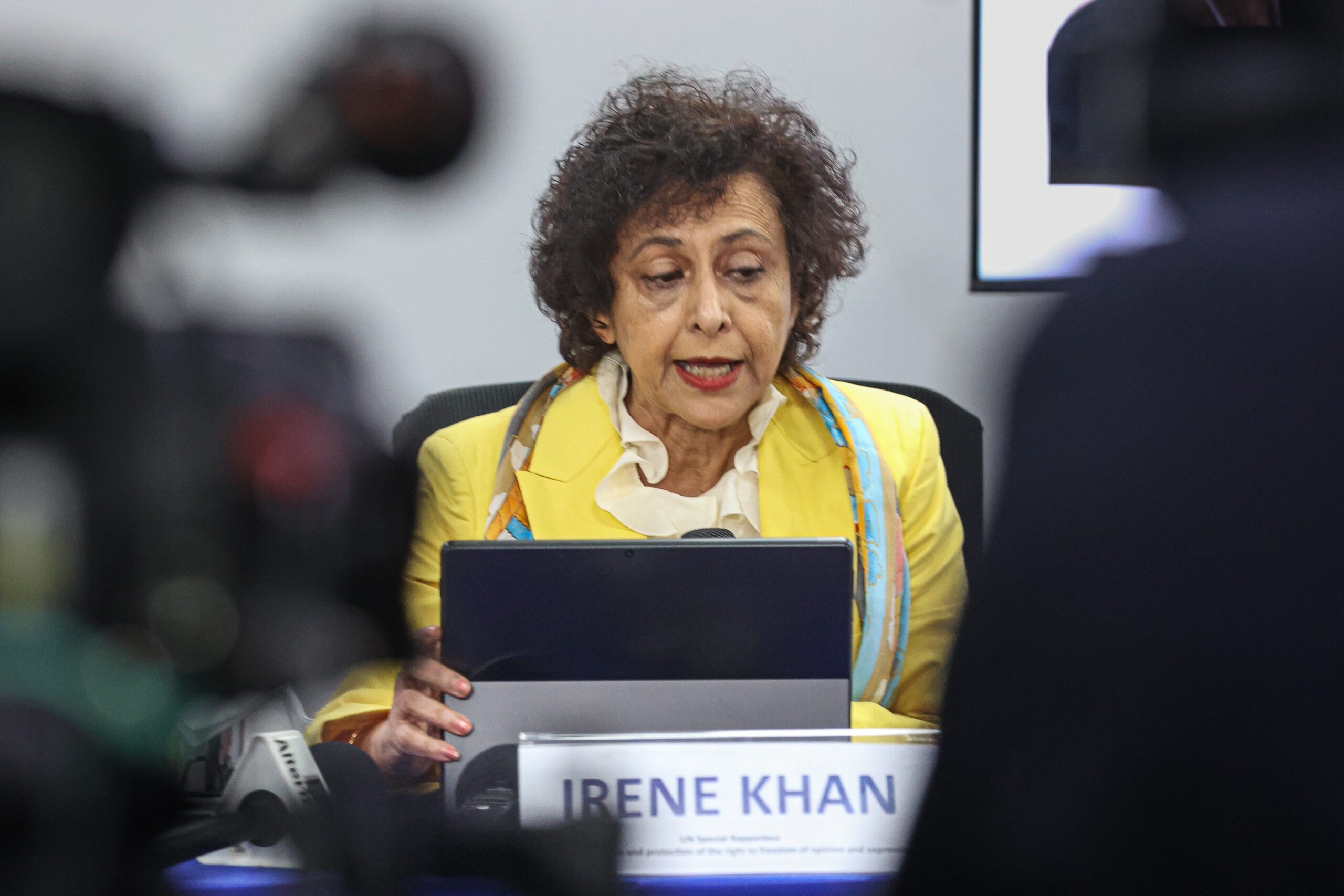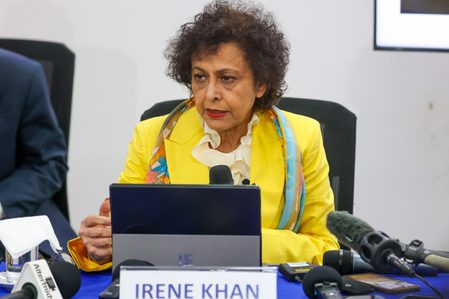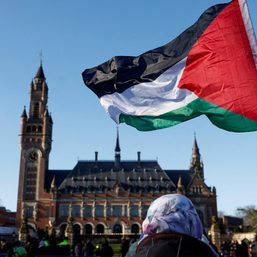SUMMARY
This is AI generated summarization, which may have errors. For context, always refer to the full article.

MANILA, Philippines – United Nations Special Rapporteur Irene Khan concluded her 10-day mission to the Philippines and found that although there were slight improvements in the state of freedom of expression here, the efforts were still not enough.
“Well, obviously, you know, some changes have been made, but I have also said in my report that it is not enough. I think the government is trying to change the page, and turning the page will require more to be done,” Khan, the UN Special Rapporteur on freedom of opinion and expression, said in her presser on Friday, February 2.
“The signs are good, it’s like the sun rising in the morning, but it’s the rest of the day that will count, as to whether it will be sunny or rainy,” she added.
The special rapporteur noted that freedom is a culture of tolerance, and based on that standard, the Philippines has no freedom of expression, Khan said.
“Well, at the moment, no. I think there is freedom of expression at one level. Because when you go out, you see all these people. Everyone is talking. I mean, you saw the press conference room was full and everyone has been able to talk,” Khan said. “But listening and tolerating on the part of the government is also part of the obligation to uphold freedom of expression.”

Khan made the recommendations, which she will report to the United Nations. Although there are no sanctions if the government does not comply to these recommendations, Khan said it may affect a country’s leverages as it vies for memberships in UN bodies.
In the case of the Philippines, the country aims for memberships and leaderships the at UN Commission on the Status of Women, and UN Security Council. So, the Philippines has a “domestic imperative” or reason to cooperate with the UN.
“That’s a very responsible position and that therefore puts some onus on the government to up its standards. It can hardly be a UN Security Council member and be unable or not manage its own security problems in line with UN standards,” the UN special rapporteur said.
“So it has a real opportunity now, to show that it can be a role model in what it is doing at home. That gives it stronger authority to play a larger role abroad,” she added.
Another way to ensure that countries will comply to recommendations or follow UN treaties is through peer pressure, Khan explained.
“Just as [the] Philippines participates in processes that create pressure on others, others will participate in processes to put pressure on [the] Philippines to up its standards,” she said.
Khan met with government officials and held dialogues with various civil society groups during her visit. The UN special rapporteur also check on individuals who were detained during former president Rodrigo Duterte’s administration, such as former senator Leila de Lima, who was recently released, and community journalist Frenchie Mae Cumpio, who remains detained in Tacloban City.
What are Khan’s specific recommendations?
In her presser, Khan laid down her specific recommendations to the government to improve the quality of free speech in the Philippines.
Like her fellow special rapporteur Ian Fry, who recommended the abolition of the country’s anti-insurgency task force, Khan also urged the government to disband the National Task Force to End Local Communist Armed Conflict (NTF-ELCAC). Khan explained that the NTF-ELCAC was already “outdated,” adding that “it does not take into account the ongoing prospects for peace negotiations.”
For the protection of human rights defenders in the Philippines, Khan also urged the country’s executive and legislative branches to adopt and expedite a law on the protection of human rights. Khan also touched on the status of the Philippine media.
“The current administration appears to be more amiable towards the press than the previous one. However, the damage caused by the previous administration has reduced media pluralism and public trust in independent journalism because of the viral disinformation and sole campaigns,” the special rapporteur said.
Khan noted that the nonrenewal of the ABS-CBN franchise was a major blow to media freedom, and affected the people’s access to information. She also raised concern over the weaponization of libel and cyber libel against journalists, noting that the laws should be repealed. “Criminalization of speech for libel is actually going out of fashion around the world.”
Meanwhile, Khan also noted that technical cooperation, although slow-going, is important because they already bear results. Technical cooperation is defined by independent organization Development Initiatives as “activities that augment the level of knowledge, skills, technical know-how or productive, aptitudes of people in developing countries, and services such as consultancies, technical support or the provision of know-how that.”
There were instances where UN issued resolutions that recommended technical cooperation for a certain country, like in 2020 when the United Nations Human Rights Council adopted a resolution, which pushed forward “technical assistance” to the Philippines amid the killings under Duterte.
“One important breakthrough has been able to bring civil society to sit down at the table with the government. That took 18 months for the government to agree on a list that was palatable to them,” Khan explained.
“Obviously, the United Nations would like to expand that list and make it a situation where civil society can walk in and the government is willing to talk to anyone who is reliable and, you know, a legitimate civil society organization,” she added. – Rappler.com
Add a comment
How does this make you feel?

![[Rappler’s Best] Welcome to the battlefield](https://www.rappler.com/tachyon/2024/05/maria-ressa-harvard-scaled.jpeg?resize=257%2C257&crop=133px%2C0px%2C1920px%2C1920px)


![[OPINION] Social media and limits of protected speech](https://www.rappler.com/tachyon/2024/04/TL-badoy-red-tagging-2-apr-27-2024.jpg?resize=257%2C257&crop=327px%2C0px%2C720px%2C720px)
![[OPINION] Badoy’s red-tagging and freedom of expression](https://www.rappler.com/tachyon/2024/04/20240426-Badoy-red-tagging-freedom-expression.jpg?resize=257%2C257&crop_strategy=attention)





There are no comments yet. Add your comment to start the conversation.